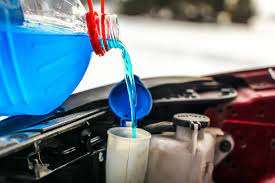When it comes to the maintenance of your vehicle, there are several key components that deserve your attention, and one of the most crucial ones is antifreeze. Antifreeze, also known as coolant, plays a vital role in ensuring your car’s engine runs smoothly, especially in extreme temperatures. In this comprehensive guide, we will delve deep into the world of antifreeze and why it is an indispensable part of your vehicle’s overall health and longevity.
What is Antifreeze?
Antifreeze is a specialized fluid used in the cooling system of your car. It is typically a mixture of water and chemicals that serve two primary functions: to regulate the engine’s temperature and prevent it from freezing or overheating. Antifreeze is usually dyed a bright color, such as green or orange, to make it easily distinguishable from other fluids in your vehicle.
Why Does Car Need Antifreeze?
One of the fundamental roles of antifreeze is to prevent your engine from freezing during cold weather. Water alone can freeze at 32 degrees Fahrenheit (0 degrees Celsius), and if this were to happen inside your engine, it could lead to catastrophic damage. Antifreeze contains chemicals that lower the freezing point of the coolant mixture, ensuring that it remains in a liquid state even in sub-zero temperatures.
Overheating Prevention
Conversely, antifreeze also prevents your engine from overheating in scorching weather conditions. Your car’s engine can generate an immense amount of heat during operation, and without proper cooling, it can reach temperatures that would lead to engine failure. Antifreeze helps dissipate this heat efficiently, maintaining your engine at an optimal temperature.
Corrosion Protection
Antifreeze is not just about temperature control; it also serves as a protector of your engine’s various components. The chemicals in antifreeze inhibit corrosion and rust within the cooling system, ensuring that all parts remain in good condition. This corrosion protection extends the lifespan of your engine and its components, ultimately saving you money on costly repairs.
Lubrication Benefits
Antifreeze doesn’t stop at temperature regulation and corrosion protection; it also offers lubrication benefits. The continuous circulation of antifreeze through your engine helps reduce friction between moving parts, which, in turn, minimizes wear and tear. This leads to a smoother and more efficient engine operation.
Maintaining Proper pH Levels
Your car’s engine operates best within a specific pH range, and antifreeze helps maintain these levels. If the pH levels become too acidic or too alkaline, it can lead to damage to the engine components. Antifreeze ensures that the pH levels stay within the optimal range, enhancing the longevity of your engine.
The Role of the Radiator
In the cooling system, the radiator is a crucial component that works hand in hand with antifreeze. The radiator is responsible for dissipating heat from the coolant as it circulates through the engine. It consists of a series of tubes and fins that facilitate the transfer of heat to the surrounding air.
Antifreeze and Environmental Concerns
It’s essential to mention that antifreeze, while highly beneficial for your vehicle, can have environmental impacts if not handled correctly. The chemicals in antifreeze are toxic, so it is vital to dispose of used coolant properly. Many automotive service centers have recycling programs in place to ensure the safe disposal of old antifreeze.
Conclusion
In summary, antifreeze is not just a mere fluid in your car; it’s a guardian of your engine’s health. From preventing freezing and overheating to inhibiting corrosion and providing lubrication, antifreeze plays a multifaceted role in ensuring your vehicle’s longevity and reliability. Regularly checking and maintaining your antifreeze levels is a small but crucial step in the overall maintenance of your car. So, the next time you wonder why your car needs antifreeze, remember that it’s a silent hero working diligently to keep your engine running smoothly.
